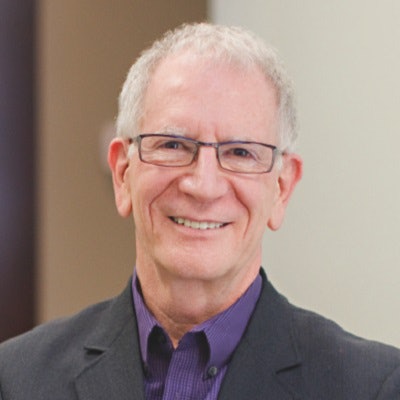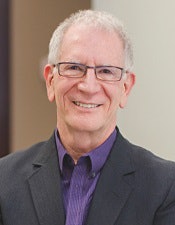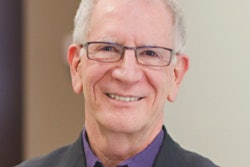
I have been given some advice recently by an astute dental scholar. He encouraged me to understand the science of evidence, which sounds like a good place to start. There is only one problem. He based his science on the myopic view that the mouth is an island unto itself with little influence from anywhere else in the body.
 Alvin Danenberg, DDS.
Alvin Danenberg, DDS.He is a throwback to the times when doctrine was that the Earth was the center of the universe and anyone who doubted that could be put to death. In a matter of fact, in 1633, Galileo was convicted of heresy, opposing the Catholic Church's teachings, but was placed under house arrest until his death in 1642.
So, what did this informed dentist have to say about evidence? He said that there is science that antimicrobial mouthwashes are safe and effective. Therefore, the matter is settled.
My concern is that there is better evidence that suggests that daily use of antimicrobial mouthwashes may damage the DNA of cells, such as a 2016 study from the journal Toxicology in Vitro (August 2016, Vol. 34, pp. 88-96).
In addition, daily use of these chemical mouthwashes might destroy some of the bacteria in the mouth that are critical for the conversion of salivary nitrates eventually into nitric oxide. Nitric oxide is necessary for many bodily functions, including blood pressure control, cardiovascular health, and even gum tissue health as I detailed in my previous column.
However, my fellow practitioner wasn't quite done. To educate me further, he stated that there was little evidence that diet had anything to do with caries and periodontal disease. The cause of dental diseases was improper brushing and flossing. Therefore, I guess I need to ignore peer-reviewed research.
Eating only primal foods
In a study published in 2009, 10 individuals were told to not brush or floss for 30 days. Additionally, their diet during this experiment consisted of primal foods common to their region in Switzerland about 5,700 years ago (Journal of Periodontology, May 2009, Vol. 80:5, pp. 759-768). No processed foods were available.
These participants had to gather and forage for the majority of their food. At the beginning and at the end of the study, pocket depths and bleeding on probing around the teeth were measured, and cultures of bacteria were taken from the plaque and the tongue.
At the end of the study, the researchers found a significant decrease in bleeding on probing and a significant decrease in pocket depths. Amounts of dental plaque increased greatly, but virulent bacteria did not increase in the plaque or on the tongue. Dental plaque and other oral microbes were in a state of homeostasis at the end of the four-week experiment.
Processed carbohydrates
In a 2016 study, 10 people with signs of gum disease who ate a diet heavily based on processed carbohydrates were selected for the experimental group, while five different individuals made up the control group (BMC Oral Health, July 26, 2016).
“The mouth is not an island unto itself.”
Participants in the experimental group changed their diet from one heavy in processed carbohydrates to one that consisted of foods low in processed carbohydrates, rich in omega-3 fatty acids, and abundant in vitamins C and D, antioxidants, and fiber. Those in the control group did not change their eating habits.
As far as oral hygiene was concerned, all 15 participants were instructed not to clean between their teeth with dental floss or interdental brushes. However, they did not have to change the way they brushed their teeth with a normal toothbrush.
After a two-week acclimation period, the study ran for four weeks. Researchers measured the signs of gum disease (bleeding on probing, pocket depths, and degree of gingival inflammation) in all participants at the start and the end of the study.
At the conclusion of the trial, all disease parameters decreased significantly in the experimental group from the starting point. In contrast, all inflammatory markers increased from the starting point in the control group.
More advice
Finally, this dental professional informed me that the dental profession is more than effective in treating dysbiosis (microbial imbalance or maladaptation on or inside the body), which is the cause of poor oral health.
I totally agree that dysbiosis is the cause of poor oral health. But, dysbiosis begins in the gut and progresses to all parts of the body -- including the mouth, according to a 2017 study in the journal Nutrients (November 2017, Vol. 9:11, pp. 1203).
Dysbiosis in the gut must be treated in conjunction with treatment of dysbiosis in the mouth. Just treating the mouth without addressing what is going on in the gut will not solve the overall problem. The mouth is not an island unto itself.
I know this dentist meant well, and I always appreciate advice when given.
A version of this column first ran on Dr. Danenberg's blog. DrBicuspid.com appreciates the opportunity to reprint it. His book Crazy-Good Living from Elektra Press is available here.
Alvin Danenberg, DDS, practices at the Bluffton Center for Dentistry in Bluffton, SC. He is also on the faculty of the College of Integrative Medicine and created its integrative periodontal teaching module. He also spent two years as chief of periodontics at Charleston Air Force Base earlier in his career. His website is drdanenberg.com.
The comments and observations expressed herein do not necessarily reflect the opinions of DrBicuspid.com, nor should they be construed as an endorsement or admonishment of any particular idea, vendor, or organization.


















